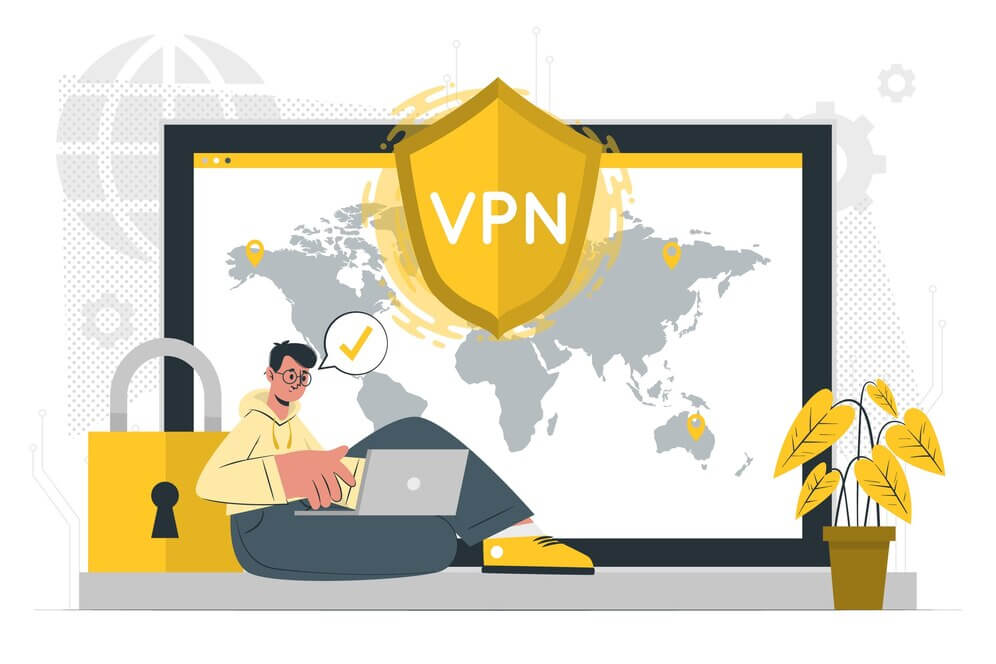
Privacy by Design: Applying VPN and Tracker Controls to Crypto Gaming
Online gaming has never been more accessible, yet every click, every login, and every connection leaves behind a digital trace. For crypto gaming in particular, where players value anonymity and speed, keeping those traces as limited as possible is part of playing smart. Privacy by design means not only choosing the right platforms but also setting up personal safeguards like VPNs, DNS leak checks, and tracker controls. These tools don’t just protect your data; they allow you to enjoy the experience without worrying about who’s watching in the background.
Why VPNs Still Matter for Gaming Privacy
A Virtual Private Network is often the first line of defense for anyone serious about online privacy. By encrypting traffic and masking your IP address, a VPN keeps your real location hidden. This prevents third parties from tying your activity back to you. In crypto gaming, VPNs offer an extra layer of separation between your identity and your play.
Of course, not all VPNs are created equal. Some keep logs, while others offer features like kill switches or split tunneling that make a difference when gaming. Before committing, it’s wise to test for speed consistency and run a DNS leak check to confirm the VPN is doing its job. Even a small leak can expose your true IP, undermining the whole reason you connected through one in the first place.
Privacy in Crypto Gaming Platforms
VPNs handle one side of the privacy equation, but gaming platforms themselves carry the other. Transparency in how these platforms handle games and data has become increasingly important. When it comes to crypto casinos, anonymity is often baked in, since many platforms make this a priority, recognizing it matters to their crypto audience. But even then, trackers embedded in web pages can build a profile of your activity if left unchecked.
That’s where tracker blockers come in. Browser-level controls or extensions can cut off invisible scripts that monitor clicks, loading times, and, in some cases, even fingerprint devices. By combining VPN privacy with transparent platforms, you can play slots with cryptocurrencies while minimizing data exposure. Taking that simple step means your entertainment stays private on two fronts: network traffic and browsing activity. Overall, then, when you play slots with cryptocurrencies, protecting both your IP and your browser trail ensures a more secure experience.
Provably Fair as Part of Privacy by Design
Privacy doesn’t stop at IP addresses and trackers. There’s also the question of whether the games themselves can be trusted. This is where provably fair systems come in. These mechanisms allow players to verify that the outcome of a game was not manipulated, adding technical transparency to the user experience.
One example is described in Thunderpick’s blog on ThunderDice and ThunderLimbo. Their system lets players check the cryptographic seeds behind game outcomes, showing clearly that results weren’t altered after bets were placed. This type of verifiable fairness supports the broader principle of privacy by design: giving players not just entertainment but control over their information and confidence in what they see on the screen.
Building a Personal Privacy Checklist
For most players, the challenge isn’t whether to care about privacy—it’s knowing where to start. A simple checklist can keep you consistent without overcomplicating things. At minimum, you’ll want to cover three areas: network protection, tracker blocking, and transparency checks.
- Network protection means using a VPN and confirming through DNS leak tests that your IP is masked.
- Tracker blocking ensures invisible data collection scripts aren’t building a behavioral profile.
- Transparency checks mean choosing platforms that allow you to see how game outcomes are generated and verified.
Each of these can be set up once and maintained with occasional checks. The combination creates a privacy-focused environment where you can enjoy gaming without second-guessing what’s happening under the hood.
When Privacy Overlaps With Security
It’s worth noting that privacy and security are often treated as separate ideas, but in practice, they overlap. A DNS leak might look like a privacy slip, yet it also opens the door to targeted attacks if malicious parties know your location or ISP. Similarly, unchecked trackers can lead to data harvesting that weakens both your anonymity and your security posture. Thinking of them together—security through privacy—keeps you from treating these measures as optional extras.
Practical Table: Privacy Measures at a Glance
To make these concepts easier to remember, here’s a quick reference table:
| Measure | What It Protects | How to Check It |
| VPN with kill switch | IP address and location | Run DNS leak test |
| Tracker blocker | Browsing behavior and device ID | Use browser add-ons with visible reports |
| Provably fair games | Game outcome integrity | Verify seeds or hashes after play |
A New Layer of Flexibility
Crypto gaming has introduced a new layer of flexibility and transparency for players worldwide. But with that freedom comes the responsibility to protect your own digital footprint, including your IP address. VPNs, DNS leak checks, tracker blockers, and provably fair systems all work together as part of a privacy-by-design approach. By applying these tools consistently, you not only enjoy smoother sessions but also peace of mind knowing your information stays yours.





